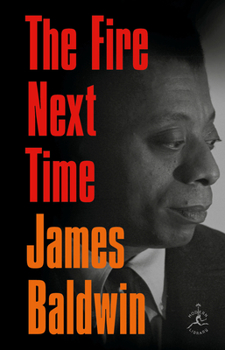The Fire Next Time
Select Format
Select Condition 
Book Overview
Customer Reviews
R U Tired Of Racism?
Prophetic!!!!
Remarkable....Eloquent....Unmistakably Baldwin.
A Powerful Message
A prescient assessment of racial relations, past and future
A powerful snapshot of America in the 1960's
Perspective Determines Change
A work of prophetic power
The Fire Next Time Mentions in Our Blog

As we welcome the month ahead, we're shining a light on notable and acclaimed August-born authors. We're delighted to celebrate them and their beloved works of fiction, nonfiction, poetry, theater, and more.

Langston Hughes described the experience of the Harlem Renaissance as "…to express our individual dark-skinned selves without fear or shame." It was a movement of the senses, steps quickened to the sound of Jazz and Blues, the air was redolent of food reminiscent of Carolina and the Caribbean, the mind was stimulated by new ideas, and the energy was like an electric current to a wire.

We've all suffered the dreaded reading slump. Sometimes we just need a little kickstart to get us going again. For many of us, this can take the form of a few slim, unputdownable reads that we can finish in a day or so. Here are twenty titles (fiction and nonfiction) that might do the trick!

James Baldwin was born on August 2, 1924. Though he died at age 63, he left behind a powerful legacy. His provocative essays introduced fresh ways of thinking about society. His fiction and poetry broke new ground, exploring themes around masculinity, sexuality, race, and class.

Today's America is hard to define. A land of promise. A melting pot. A country of immigrants. A study in contrasts. We are young. We are optimistic. We are angry. We are evolving. Here are eight contemporary authors who represent and celebrate the glorious diversity of the American experience.






